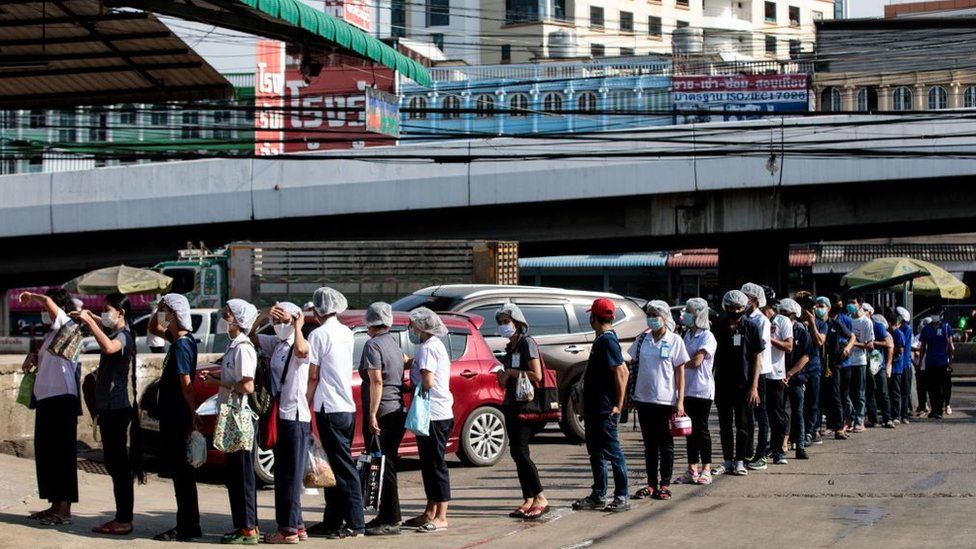Discriminatory practices, lack of access to adequate housing, food and safe drinking water and poor health conditions in detentions centers are just some of the many human rights deprivations faced by migrants and refugees in Thailand amidst the continuing COVID-19 pandemic.
These and other concerns were highlighted at focus ground discussion co-hosted on 6 August by the ICJ, the UN Office of the High Commissioner for Human Rights (OHCHR) South-East Asia Regional Office and Amnesty International Thailand on the harms the pandemic has brought particularly to the economic, social and cultural rights of refugees, asylum seekers and migrant workers in Thailand.
Participants included more than 30 individuals from civil society organizations concerned with human rights, refugee rights and labour rights; a member of Thailand’s House of Representatives; and representatives from governmental agencies, including the Immigration Bureau and the Ministry of Labour’s Department of Labour Protection and Welfare.
Civil society organizations expressed concerns that the COVID-19 pandemic has exacerbated the challenges that refugees, asylum seekers and migrant workers already faced in respect of their human rights. In particular, they referred to the:
- Barriers in accessing COVID-19 healthcare services, goods and facilities, including vaccinations, testing and treatment, in part due to non-inclusive policies, discriminatory implementations of some inclusive policies and language barriers;
- Exclusion of refugee, asylum seekers and migrant workers from social relief packages, which has further harmed rights, including, the rights to housing, adequate food and access to safe and potable water and adequate sanitation;
- Continued implementation of immigration laws and policies, including arbitrary and prolonged detention in overcrowded immigration detention facilities, without due regard to the health risks of refugees, asylum seekers and migrant workers during the pandemic.
“Thailand has the immediate obligation to provide a minimum level of essential health services, goods and facilities to individuals from marginalized communities, including refugees, asylum seekers and migrant workers. The Thai authority must also immediately eradicate obstacles preventing the full enjoyment of their economic, social and cultural rights,” said Sanhawan Srisod, ICJ Associate Legal Advisor.
Under article 2(2) of the International Covenant on Economic, Social and Cultural Rights (ICESCR), to which Thailand is a party, Thailand must respect, protect and fulfil economic, social and cultural rights by all people in the country without discrimination, including discrimination against non-citizens on the grounds of nationality.
The rights in the ICESCR apply to everyone including migrant workers, refugees and asylum seekers, regardless of legal status and documentation.
Further reading
Living Like People Who Die Slowly: The Need for Right to Health Compliant COVID-19 Responses




